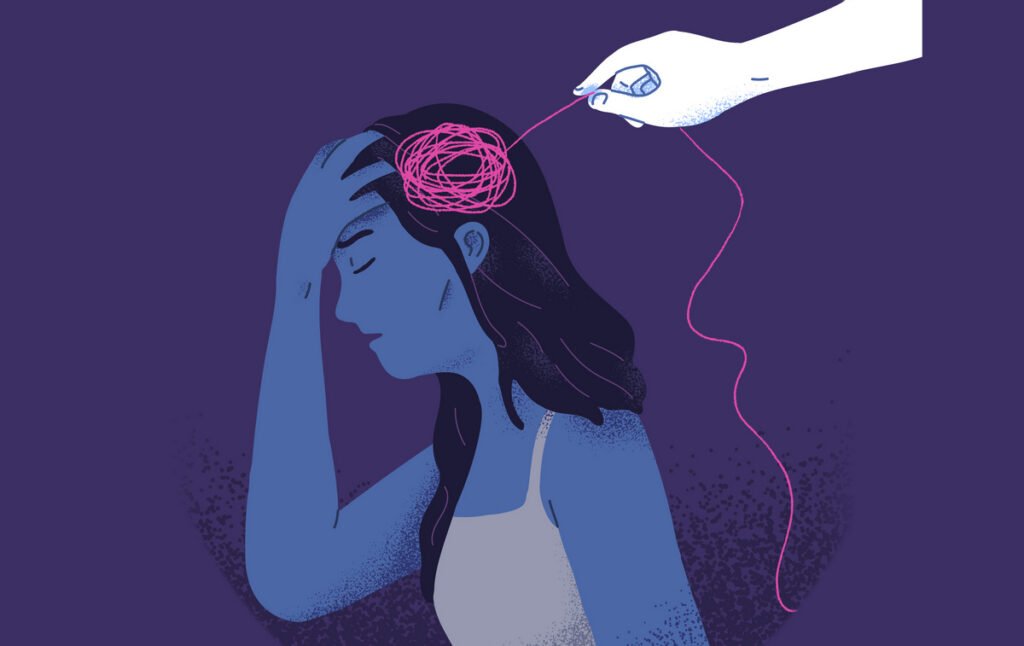7 Crucial Mental Health Signs
7 Mental Health Signs You Shouldn’t Ignore: Maintaining mental health is as crucial as taking care of your physical health. However, recognizing when you might need help isn’t always straightforward. Many people dismiss or overlook signs of mental health issues, but being aware of these signals can make a significant difference. Here are seven mental health signs you shouldn’t ignore, explained in a friendly and informative manner.
1. Persistent Sadness or Mood Swings
7 Mental Health Signs You Shouldn’t Ignore: Feeling down from time to time is part of life, but if you experience prolonged periods of sadness or frequent mood swings, it might be time to pay attention. Persistent sadness, also known as depression, affects how you feel, think, and handle daily activities. Extreme mood swings can also be indicative of mood disorders such as bipolar disorder. If these feelings last more than a couple of weeks or interfere with your daily life, consider reaching out for support.

2. Withdrawal from Social Activities
7 Mental Health Signs You Shouldn’t Ignore: Have you noticed a shift in your social behavior? If you’re suddenly avoiding friends, family, or activities you once enjoyed, it could be a sign of mental health struggles. Social withdrawal can be a symptom of depression, anxiety, or other mental health conditions. It’s essential to understand that isolating yourself might make things worse. Seeking support or talking to a trusted friend can help break the cycle of isolation.

3. Difficulty Concentrating
7 Mental Health Signs You Shouldn’t Ignore: Struggling to focus on tasks or maintain attention can be more than just a sign of being tired. Persistent difficulty concentrating can be a symptom of various mental health issues, including anxiety and depression. When your mind is overwhelmed, it can affect your ability to think clearly or remember things. If this issue is affecting your daily responsibilities or work, consider talking to a mental health professional.

4. Changes in Sleep Patterns
7 Mental Health Signs You Shouldn’t Ignore: Sleep is crucial for overall well-being, and any significant changes in your sleep patterns might be a red flag. Whether you’re sleeping too much or experiencing insomnia, changes in sleep can be linked to mental health issues. For example, insomnia is often associated with anxiety and depression, while oversleeping might signal a mood disorder. Monitoring your sleep patterns and discussing changes with a healthcare provider can be a proactive step.

5. Increased Substance Use
7 Mental Health Signs You Shouldn’t Ignore: Turning to alcohol, drugs, or other substances to cope with stress or emotional pain can be a sign of underlying mental health problems. Increased substance use is often a way to numb or escape feelings, but it can lead to further complications and worsen mental health. If you find yourself relying on substances more than usual, seeking professional help can provide healthier coping mechanisms.

6. Unexplained Physical Symptoms
7 Mental Health Signs You Shouldn’t Ignore: At times, mental health challenges can reveal themselves through physical symptoms. Frequent headaches, stomachaches, or chronic fatigue with no clear physical cause may be linked to stress, anxiety, or depression. If you’re experiencing unexplained physical symptoms, it’s important to consider whether mental health might be contributing to these issues. A healthcare provider can help determine the cause and suggest appropriate treatment.

7. Persistent Feelings of Hopelessness
7 Mental Health Signs You Shouldn’t Ignore: Feeling hopeless or having thoughts of worthlessness are serious indicators of mental health problems. These emotions become especially alarming when they escalate to thoughts of self-harm or suicide. If you or someone you know is experiencing these feelings, it’s crucial to seek help immediately. Contact a mental health professional, reach out to a trusted person, or call a crisis hotline for support.

Seeking Help
Recognizing these signs is the first step toward addressing mental health concerns. If you’re experiencing any of these symptoms, it’s important to seek help. Mental health professionals, such as therapists or counselors, can provide guidance and support tailored to your needs. Remember, reaching out for help is a sign of strength, not weakness, and taking action can lead to a healthier, more fulfilling life.
Mental health is an ongoing journey, and being attentive to these signs can help you take control of your well-being. By staying informed and proactive, you can ensure that you’re giving yourself the best chance to thrive mentally and emotionally.

Conclusion
Being vigilant about mental health is crucial for overall well-being. The signs discussed—persistent sadness, social withdrawal, difficulty concentrating, changes in sleep patterns, increased substance use, unexplained physical symptoms, and feelings of hopelessness—are key indicators that shouldn’t be ignored. Addressing these signs early by seeking professional help can make a significant difference. Remember, taking proactive steps towards mental health is a sign of strength and can lead to a more balanced and fulfilling life. Stay informed, seek support when needed, and prioritize your mental health as an integral part of your overall wellness journey.
Was This Information Helpful? 🤔
Click an option to vote.

